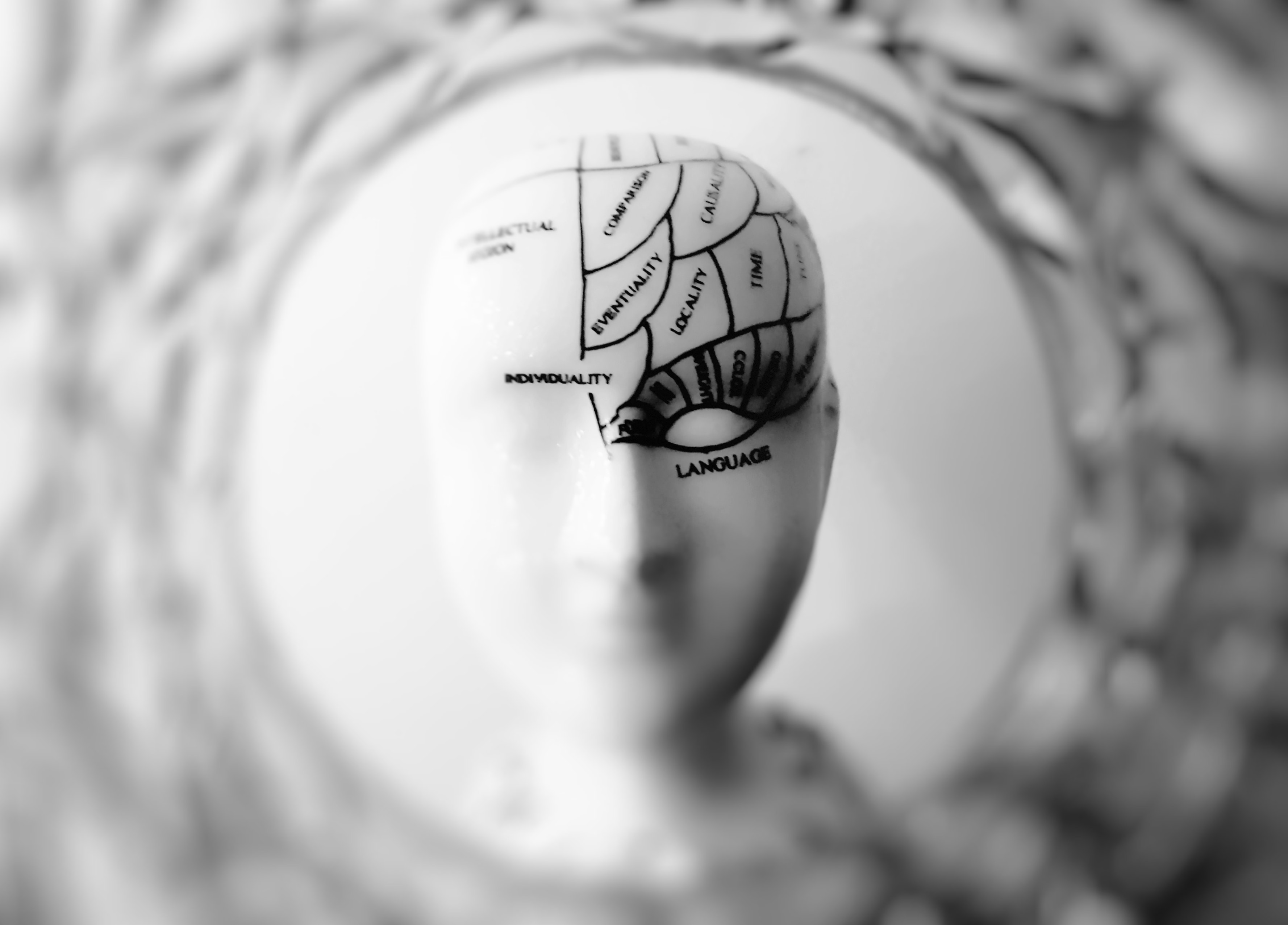D Y Patil International University, Akurdi, Pune
Search results: 1884
This advanced course in Design Thinking builds on foundational principles to tackle complex societal challenges. It emphasizes problem-solving through systems thinking, empathy, and innovative prototyping techniques like 3D printing. Students will develop research capabilities, frame problems effectively, and create scalable solutions, preparing them for real-world challenges in design-led societal change.
- Teacher: Ms. Monika Sharma
- Teacher: Dr. Shailesh Ghodke
- Teacher: Mr. Naresh Bathula
- Teacher: Mr Kuntal De
- Teacher: Varun Sharma

Name of the Course: ECE1106: Design Thinking and Fabrication Technics
- Course Instructor:
Name: Dr. Atul R Kolhe
Phone: 9970456457
Email: atul.kolhe@dypiu.ac.in
Office hours: 9:30 AM to 5:00 PM
Location: ED Cell 2nd Floor Near Central Lift)
Level : Civil Engineering & Any Under Graduate Level student
- Credit: 2-0-1-3.0
- Evaluation:
- Breakup of evaluation: % wise
- Theory:
i. Mid-Semester Exam: 30%
ii. Assignments/Case Studies: 20%
iii. End-Semester Exam: 50%
- Tutorials:
i. Class Participation and Problem Solving: 40%
ii. Case Study Presentation: 60%
- Practical:
i. Continuous Evaluation: 50%
ii. Final Viva and Project Submission: 50%
Maximum Number of Students: 60
- Course Description
This course emphasizes the principles and process of Design Thinking as a structured approach to solving real-world engineering challenges. Tailored for first-year Civil Engineering students, it introduces a human-centered, collaborative, and iterative methodology to foster creativity and innovation in problem-solving.
Students will learn to empathize with users, define problems, ideate potential solutions, and create prototypes while refining their designs through feedback and testing. The course also incorporates basic fabrication techniques, such as model-making and 3D printing, enabling students to bring their ideas to life.
By focusing on the mindset and process of Design Thinking, this course equips students with the skills to address complex engineering problems with innovative, sustainable, and user-focused solutions.
Through practical sessions, students will learn fundamental fabrication techniques, including model-making, 3D printing, and material manipulation, to translate design concepts into tangible outputs. By fostering creativity and technical skills, this course prepares students to approach engineering problems with a multidisciplinary perspective and a focus on sustainable and efficient design solutions.
Course Objectives:
- To introduce design thinking principles for solving real-world civil engineering challenges.
- To provide knowledge of fabrication techniques, including advanced digital tools and 3D printing technologies.
- To develop the ability to create sustainable, functional, and innovative civil engineering solutions.
Prerequisites:
Basic Engineering Graphics, Advanced Drawing Techniques, and familiarity with CAD tools.
Course Syllabus:
Lesson Plan:
|
Sr. No |
Content (Daily Plan) |
Date (Proposed) |
|
1 |
Unit 1: Introduction to Design Thinking and its Overview |
13/01/25 |
|
2 |
Empathize, Define, Ideate, Prototype, and Test phases. |
15/01/25 |
|
3 |
Importance of human-centered design in civil engineering. |
17/01/25 |
|
4 |
Problem-Solving in Civil Engineering: Case studies in infrastructure, urban planning, and materials innovation. |
20/01/25 |
|
5 |
Techniques for brainstorming and idea generation. |
22/01/25 |
|
6 |
Visualization
Tools: |
24/01/25 |
|
7 |
27/01/25 |
|
|
8 |
Advanced Drafting Tools: Application of AutoCAD, Revit, and SketchUp for 2D and 3D modeling. |
29/01/25 |
|
9 |
Layer management, blocks, templates, and standards in civil engineering drawings. |
31/01/25 |
|
10 |
Introduction to BIM and its advantages in collaborative design. |
03/02/25 |
|
11 |
Parametric Design Fundamentals:Basics of Rhino and Grasshopper for parametric modeling. |
05/02/25 |
|
12 |
Cross-Disciplinary Integration: Combining architectural, structural, and service designs into a cohesive framework. |
07/02/25 |
|
13 |
Unit
3: Overview of Fabrication Methods: |
10/02/25 |
|
14 |
Introduction
to 3D Printing: |
12/02/25 |
|
15 |
Materials for construction: concrete, polymers, and composites. |
14/02/25 |
|
16 |
File
Preparation for Fabrication: |
17/02/25 |
|
17 |
Applications
in Construction: |
21/02/25 |
|
18 |
o Full-scale applications: walls, beams, bridges, and modular housing. |
24/02/25 |
|
19 |
Unit
4: Structural Optimization Techniques: |
28/02/25 |
|
20 |
Sustainability
in Fabrication: |
3/3/25 |
|
21 |
o Impact of 3D printing on reducing waste and energy consumption. |
05/03/25 |
|
22 |
Sustainable
Case Studies: |
07/03/25 |
|
23 |
Future
Trends: |
17/03/25 |
|
24 |
o Digital twins and their application in construction. |
19/03/25 |
|
25 |
Unit
5: Prototyping Techniques: |
21/03/25 |
|
26 |
o Iterative prototyping using 3D printing |
24/03/25 |
|
27 |
Modular components using 3D printing |
21/03/25 |
|
28 |
2.
Testing and Feedback: |
24/03/25 |
|
29 |
o Role of simulations and physical testing. |
26/03/25 |
|
30 |
3.
Iterative Design: |
28/03/25 |
Laboratory
|
Sr. No |
Content |
Date |
|
1. |
Draw a Detailed Plan Elevation Plan and Section of Residential Building using AutoCaD with Layer Management |
22/01/25 |
|
2 |
Work on hypothetical design challenges using design thinking principles |
05/02/25 |
|
3 |
Design an innovative plan and elevation for any special structure |
19/02/25 |
|
4 |
Analyze real-world projects like 3D-printed houses, modular bridges, or innovative urban infrastructure |
05/03/25 |
|
5 |
Explore advanced functions of AutoCAD, Revit, Rhino, and Grasshopper under instructor supervision. |
19/03/25 |
|
6 |
Present initial drafts of designs or fabricated small building component models |
26/03/25 |
- Course Outcome:
Upon successful completion, students will be able to:
- Apply design thinking methodologies to civil engineering problems.
- Use advanced digital tools for modeling and detailing.
- Understand and implement fabrication techniques, including 3D printing and parametric design, for prototypes and structures.
- Emphasize sustainability and efficiency in design and fabrication practices.
- Text Book:
- Design Thinking for Engineers and Architects – S.M. Jain
- AutoCAD 2024: A Problem-Solving Approach – Sham Tickoo
- 3D Concrete Printing Technology: Construction and Building Applications – Jay G. Sanjayan, Ali Nazari, and Behzad Nematollahi
- Reference Book:
- Solving Problems with Design Thinking: Ten Stories of What Works – Jeanne Liedtka, Andrew King, Kevin Bennett
- Mastering Autodesk Revit 2024 – Daniel John Stine
- Additive Manufacturing Technologies: Rapid Prototyping to Direct Digital Manufacturing – Ian Gibson, David Rosen, Brent Stucker
- Teacher: Dr. Atul Kolhe
- Teacher: Dr. Swapnil Bhurat
- Teacher: Dr. Prateek Srivastav
- Teacher: Dr. Swapnil Bhurat
- Teacher: Mr Rupam Ghosal
- Teacher: Parvez Patel
- Teacher: Mr Rupam Ghosal
- Teacher: Parvez Patel
- Teacher: Mr.Swet Chandan
- Teacher: Mr Saurabh Gargote
- Teacher: Dr. Rahul Sharma
- Teacher: Mr Saurabh Gargote
- Teacher: Dr. Rahul Sharma
- Teacher: Dr. Prateek Srivastav
- Teacher: Mr. Rajkumar Chaudhari
- Teacher: Mr. Akash Sambhaji Dange
- Teacher: Anil Narasipuram
- Teacher: Dr. Swapnil Bhurat
- Teacher: Pranil Choudhari
- Teacher: Dr Arvind Kumar Mathur
- Teacher: Pranjal Shahinath Tekade

Course: Design Thinking II
Aim: Introduce participants to Design Thinking principles and foster creative problem-solving skills.
Objectives:
- Define and empathize with users' needs.
- Generate innovative ideas through ideation techniques.
- Prototype and iterate solutions effectively.
- Collaborate in interdisciplinary teams.
- Apply Design Thinking in real-world scenarios.
Session No. | Topic & Sub-Topic | Duration (Hrs.) |
The human brain, subconscious mind, psychology of interaction design, cognitive frameworks | 5 | |
Cognition and perception, visual perception and color vision | 3 | |
Memory, types of memory | 3 | |
Thinking , action, learning, mental models, cognitive biases | 3 | |
Attention, choice, cognitive load | 5 | |
Emotion and experience, peak experience, flow | 3 | |
Visceral, behavioral and reflective design | 5 | |
Feedback loops, social validation and virality | 3 | |
Total Hrs. | 30hrs. |
`Prerequisite/s - Understanding of Design-related courses: While not a strict prerequisite, taking courses in design or related fields like graphic design, industrial design, or human-computer interaction can be advantageous. These courses can provide you with a foundational understanding of design principles, aesthetics, and user-centered design.
Mode of submission - Soft Copies
- Teacher: Mr Krishna Kumar
The Design Thinking Laboratory (Fabrication Lab) is an engaging, hands-on course for first-year Mechanical Engineering students that introduces the essentials of creative problem-solving, prototyping, and design thinking. This lab empowers students to tackle real-world engineering challenges using a structured design-thinking approach, encompassing five stages: empathize, define, ideate, prototype, and test.
In the lab, students learn to work collaboratively in teams, developing empathy and understanding user needs to create practical, user-centered solutions. Through project-based learning, students gain direct experience with rapid prototyping, allowing them to turn ideas into physical prototypes, test solutions, and refine designs iteratively.
The course also introduces students to basic fabrication techniques. Skills in additive manufacturing (3D printing) and subtractive processes (like CNC milling) are built, along with familiarity with hand tools and basic electronics. Working with materials such as plastic, wood, and metal, students build confidence and competence in creating functional prototypes.
Alongside technical skills, the lab emphasizes communication and presentation skills, essential for documenting and effectively sharing the design process and final outcomes. This prepares students to confidently communicate their ideas in professional and academic contexts.
By the end of the course, students will have a solid foundation in design thinking, practical fabrication skills, and the ability to approach problems with creativity and resilience, preparing them for future engineering challenges and innovations.
- Teacher: Dr Vikas Dive
- Teacher: Dr Aniket Kolekar

Development Communication is a dynamic and interdisciplinary course that delves into the intricate relationship between communication and socioeconomic development. This course explores the theories, strategies, and real-world applications of communication in the context of fostering positive change within diverse communities and regions globally. Through an examination of historical and contemporary perspectives, students gain insight into the multifaceted role of communication in driving social development, from advocacy and lobbying to the ethical and cultural considerations that underpin effective communication initiatives. By the end of this course, students will be equipped with the knowledge and skills needed to design, implement, and critically evaluate development communication campaigns and projects.
- Teacher: Ms. Neha Dubey

- Teacher: Ms. Neha Dubey
- Teacher: Ms. Neha Dubey
- Teacher: Suraj Shete
- Teacher: Dr. Bahubali Shiragapur
- Teacher: Dr. Maheshwari Biradar
- Teacher: Dr Shubhro Chakrabartty
- Teacher: Ms Karishma Doke
- Teacher: Mrs Monika Kapgate
- Teacher: Jayashri Kawale
- Teacher: Bhakti Sathe
- Teacher: Dr. Bahubali Shiragapur
- Teacher: Dr Jagadish Jakati
- Teacher: Jayashri Kawale
- Teacher: Dr. Rahul Sharma
